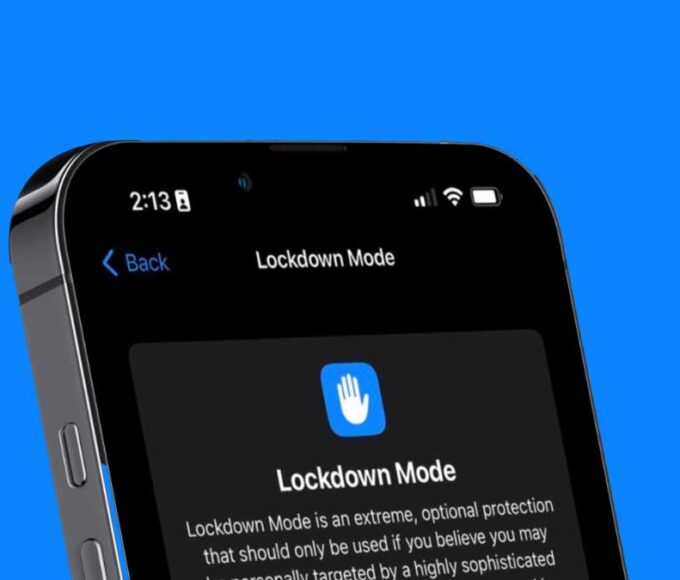- Home
- Billionaires
- Investing Newsletters
- 193CC 1000
- Article Layout 2
- Article Layout 3
- Article Layout 4
- Article Layout 5
- Article Layout 6
- Article Layout 7
- Article Layout 8
- Article Layout 9
- Article Layout 10
- Article Layout 11
- Article Layout 12
- Article Layout 13
- Article Layout 14
- Article Sidebar
- Post Format
- pages
- Archive Layouts
- Post Gallery
- Post Video Background
- Post Review
- Sponsored Post
- Leadership
- Business
- Money
- Small Business
- Innovation
- Shop
Recent Posts
FBI Warns Shoppers of Fraudulent Websites

With the holiday shopping season kicking off with Black Friday and Cyber Monday sales, online shoppers face a greater threat than ever before. The FBI has issued an urgent warning about the growing number of fraudulent websites targeting consumers. Scam sites have surged by 89% compared to last year, with nearly 80% of shopping offers flooding inboxes being fraudulent. Even Google search results are being manipulated to direct traffic to dangerous websites. This makes it more important than ever for online shoppers to stay alert and take extra precautions before making purchases, particularly users of popular browsers like Chrome, Safari, and Edge, which control nearly 95% of the U.S. market.
The FBI has outlined several key steps for shoppers to follow to avoid falling victim to online scams. First, it’s crucial to carefully inspect a website’s URL. Ensure that it starts with “https,” which indicates a secure connection, and check for a padlock icon next to the address bar. If these signs are missing or the URL seems unclear, it’s safer to move on and find a more reputable site. Second, always research a seller before making a purchase, especially if it’s your first time shopping with them. Look for online reviews, but remember that reviews can be faked, so it’s important not to rely on the first ones you find. If you’re shopping on an auction site or marketplace, pay close attention to feedback ratings. Avoid sellers with predominantly negative reviews or no ratings at all. A legitimate seller should have a solid track record of completed transactions and positive feedback.
The FBI also warns consumers to be cautious of sellers who claim to be authorized dealers or representatives of well-known brands, especially in countries where such deals don’t exist. These types of scams involve sellers taking orders and either not shipping goods at all or sending counterfeit items instead. Additionally, it’s important to avoid sellers who claim to be based in the U.S. but then explain that they are out of the country for reasons such as business or family emergencies. This is another common tactic used by scammers to create a false sense of legitimacy. Furthermore, shoppers should be wary of unusual shipping arrangements or offers to bypass customs checks or fees. Never buy from sellers who request direct money transfers, as this type of payment is harder to trace and doesn’t offer the same protections as credit card payments.
One of the most common scams involves sellers requesting payment through prepaid gift cards. Scammers often ask for the card number and PIN, promising that it’s necessary to complete the transaction. Once the scammer receives this information, they steal the funds, leaving the buyer with nothing. To avoid this, always use a secure payment method, such as a credit card, which provides additional protection and allows for disputes if something goes wrong.
As online shopping continues to grow during Black Friday and Cyber Monday, cybersecurity experts are warning of an increase in fraudulent websites. Check Point, a cybersecurity firm, reports that cybercriminals are actively targeting consumers with sites that impersonate well-known brands. This year, the surge in fraudulent websites related to Black Friday is 89% higher than last year, with most of these sites being unsafe and designed to trick shoppers. To help consumers stay safe, Check Point offers a similar checklist to the FBI’s, recommending that shoppers closely check URLs for misspellings or unusual domains, ensure the site starts with “https://” and displays a padlock icon, and verify the authenticity of emails before clicking on any links. They also advise against scanning QR codes and entering unnecessary personal information, such as social security numbers, unless it’s absolutely required.
Check Point has also identified several fraudulent websites designed to trick consumers into making purchases. These sites typically imitate popular brands and use URLs that closely resemble legitimate ones. Examples of these fraudulent URLs include stussycanadablackfriday[.]com, longchampblackfriday[.]com, wayfareblackfriday[.]com, soreloutletblackfriday[.]com, jcrewblackfriday[.]com, and blackfriday-shoe[.]top. Shoppers should be aware of these and other suspicious websites that may attempt to deceive them.
Phishing scams are also a growing concern, with cybercriminals sending out marketing emails that appear to be legitimate offers but are actually designed to steal personal information or install malware. Bitdefender has warned that 75% of Black Friday-themed marketing emails are now phishing attempts. These emails often come with enticing deals that pressure consumers to act quickly, which increases the likelihood of falling for the scam. This year, phishing attacks have become more sophisticated, with cybercriminals using AI to craft convincing fake offers that mimic trusted brands. These emails are sent in bulk to thousands of inboxes, making it more likely that unsuspecting shoppers will click on malicious links or share their personal details.
The FBI’s warning is a critical reminder that shoppers need to exercise caution when shopping online this holiday season. As cybercriminals continue to refine their tactics, shoppers must stay vigilant and follow the provided safety guidelines. If an offer seems too good to be true, it probably is. By taking the necessary precautions, shoppers can avoid the costly consequences of falling victim to scams and enjoy a safer shopping experience during Black Friday, Cyber Monday, and throughout the holiday season.
Recent Posts
Categories
- 193 Countries Consortium Partner1
- 193cc Digital Assets2
- 5G1
- Aerospace & Defense48
- AI37
- Arts3
- Banking & Insurance11
- Big Data3
- Billionaires962
- Boats & Planes1
- Business332
- Careers13
- Cars & Bikes79
- CEO Network1
- CFO Network17
- CHRO Network1
- CIO Network1
- Cloud10
- CMO Network18
- Commercial Real Estate7
- Consultant1
- Consumer Tech194
- CxO1
- Cybersecurity73
- Dining1
- Diversity, Equity & Inclusion4
- Education7
- Energy8
- Enterprise Tech29
- Events11
- Fintech1
- Food & Drink2
- Franchises1
- Freelance1
- Future Of Work2
- Games149
- GIG1
- Healthcare79
- Hollywood & Entertainment203
- Houses1
- Innovation46
- Investing2
- Investing Newsletters4
- Leadership65
- Lifestyle11
- Manufacturing1
- Markets20
- Media195
- Mobile phone1
- Money13
- Personal Finance2
- Policy569
- Real Estate1
- Research6
- Retail1
- Retirement1
- Small Business1
- SportsMoney42
- Style & Beauty1
- Success Income1
- Taxes2
- Travel10
- Uncategorized12
- Vices1
- Watches & Jewelry2
- world's billionaires931
- Worlds Richest Self-Made Women10
Related Articles
Android & iPhone Users Urged to Run Security Checks
With the rise of cyber threats targeting both Android and iPhone users,...
By 193cc Agency CouncilJanuary 1, 2025Apple Warns: Avoid Lockdown Mode on iPhone
Apple’s latest security alert for iPhone users raises important concerns about the...
By 193cc Agency CouncilDecember 31, 2024750 Million Android Users Face Urgent Security Risks
Google has made significant strides in improving Android’s security ecosystem, aiming to...
By 193cc Agency CouncilDecember 31, 2024Surge in Paper Werewolf Cyberattacks on Russian Targets
A troubling rise in espionage-driven attacks using Microsoft Windows Word documents has...
By 193cc Agency CouncilDecember 30, 2024








Leave a comment